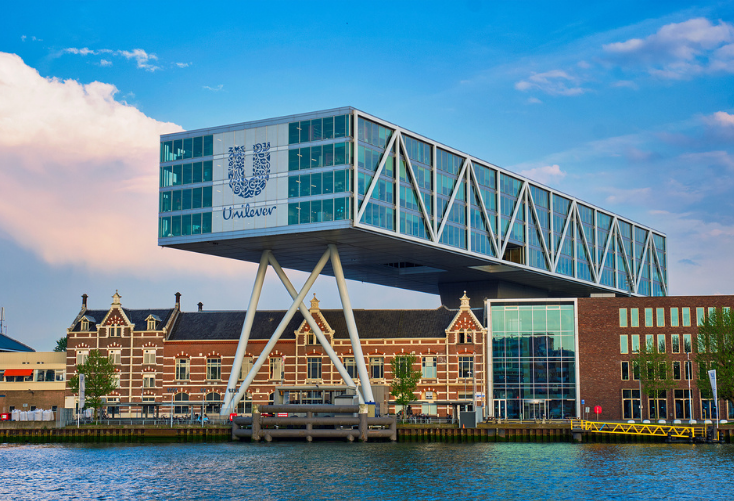Hand selected flexible workspace news from the most reliable sources to keep you ahead of the pack. We find all the latest news, so you don’t have to. Morning and afternoon updates. Stay in the know.
Here’s what you need to know today:
- What To Expect From Remote Working Policies NEW
- Unilever To Launch Four-day Work Week Experiment NEW
- How Jobs And Skills Are Adapting To The Future NEW
- Long-term Leases Taking A Hit Due To COVID-19
- What To Expect From The Future Of Work Next Year
- Office Real Estate Is Evolving
What To Expect From Remote Working Policies
With vaccines being prepared to be distributed across the country, we can finally see the light at the end of the COVID-19 tunnel. So what does this mean for the millions of businesses that have transitioned to remote working policies over the last several months?
While research has indicated that companies will adopt remote working arrangements permanently, the reality is more nuanced that this.
Analysis from McKinsey Global Institute of over 2,000 activities across 800 occupations found that remote working is mostly prominent within groups of workers who are highly skilled and educated.
While only 20% of the overall workforce have the ability to work remotely three to five days each week, that is three to four times the amount of employees who could work remotely prior to the pandemic.
At this rate, remote working is bound to completely transform urban economies, transportation and more.
However, over half of workers still have little to no opportunity to work from home since their jobs require in-person attendance. This could lead to amplifying social inequities and disparities among the workforce.
Moving forward, companies will likely opt for hybrid arrangements rather than strictly remote working policies. This is due in part to the increasing demand from employees to have a physical workplace to come into some of the time.
According to a McKinsey survey, 38% of corporate executives anticipate that their remote workers will work from home one or two days each week after the pandemic.

Unilever To Launch Four-day Work Week Experiment
Consumer goods group Unilever is launching a year-long experiment to test how a four-day work week will impact their workforce.
Starting next week, the company will begin paying its 81 employees in New Zealand for five days, while allowing them to work four.
After the year is up, Unilever will identify the lessons from the experiment and see how it can apply to the rest of its 155,000 staffers.
“I’ve got colleagues all over the world who are saying ‘Please don’t stuff this thing up because we want to have a go at it some time in the future’,” said Nick Bangs, Unilever’s New Zealand managing director.
Bangs added that a four-day work week may not be plausible for manufacturing sites, but the company does not have manufacturing in New Zealand where the experiment is taking place.
This is one of many experiments companies have undergone to improve retention rates, as well as the productivity and wellbeing of their employees. For instance, Microsoft noted that their productivity grew when it started offering four-day work weeks for its staff in Japan last August.
Bangs said he was inspired by Andrew Barnes, founder of New Zealand estate planning firm Perpetual Guardian. The company made waves in 2018 when it announced it would give its staff of 240 a day off at full pay for eight weeks, which led to a huge uptick in productivity.
Unilever CEO Alan Jope has offered “overwhelming support” and said that he anticipates the workplace to be hybrid in the future.

How Jobs And Skills Are Adapting To The Future
The World Economic Forum’s “The Future of Jobs Report 2020” was published and featured an in-depth look into how jobs and skills will evolve following the impact of the pandemic.
One of the key takeaways from the report was the “double-disruption” being experienced by the workforce, with companies embracing automation at the same time that lockdowns are causing massive layoffs.
A survey within the report found that 43% of businesses said they are reducing jobs due to technology integration, while 41% said they anticipate an increased use of ‘task-specialized work’. However, 34% added that they actually plan on expanding their workforce due to new technologies.
Additionally, the loss of jobs is growing as job creation slows down. In fact, the survey found that the amount of jobs that will be seen as redundant will go from over 15% to less than 10%.
The report also touched on the future of remote working, which is expected to become a mainstay for many companies. This will likely lead to increased digitization of processes, forcing companies to focus on nurturing their community and the well-being of workers.
Lastly, despite the high number of jobs that are predicted to be displaced over the next few years, business leaders are recognizing the importance of upskilling their employees in order to retain them. Keeping on current workers and repurposing them not only improves workplace operations, but also keeps workers satisfied in their positions.

Long-term Leases Taking A Hit Due To COVID-19
The coworking industry was once seen as the scrappy, up-and-coming disruptor of the commercial real estate market, particularly in New York City.
It made sense — companies could rent out fully-furnished, often state-of-the-art office spaces on a short-term basis.
However, despite demand for this flexible way of leasing having grown, the death of long-term leases was far from over. Manhattan tenants and landlords continued to express preferring longer deals simply for the security.
But that all changed when the COVID-19 pandemic hit, and the resiliency of long-term leases is now being put to the test.
“The 10-year lease had already been endangered because of the advent of WeWork and Knotel,” said David Levy, a principal at brokerage Adams & Company. “However, smart companies — wise companies, companies that are more long-term thinking — are reaching for 10-year deals now. And most of the leases we’re making today are 10-year leases.”
Among companies large and small, research has found the average length of leases of at least 100,000 square feet signed in 2020 through September in Midtown Manhattan was 8.7 years, as opposed to the average of 12.7 years last year.
This drop in average lease length was largely driven by major tenants, such as NBC Universal, opting for short-term renewals, according to Franklin Wallach, senior managing director of research at Colliers.
“People go for shorter-term leases when there’s lack of clarity in the market to kind of triage their own immediate situation,” said Grant Greenspan, a principal at landlord and manager Kaufman Organization. “There’s always a flight to quality because prices will drop.”

What To Expect From The Future Of Work Next Year
Karandeep Anand, vice president at Facebook’s Workplace, has offered five predictions on what to expect from the workforce in 2021.
“Now, as the dust settles, companies can see what was effective, and what wasn’t, about the experiment of remote work in 2020, and what they must do differently as it becomes the norm,” said Anand. “As we move towards 2021, we envision a new world in which advanced technologies merge with evolving philosophies of work.”
The first prediction is that frontline workers, such as delivery drivers and teachers, will have bigger decision-making roles. Businesses need to make the lives of these workers easier and less stressful, so hearing out what works best for them will be essential in the future.
Additionally, health and wellbeing will move up on the priority list for businesses. This year has had a great impact on both the mental and physical health of workers, and companies need to make it a point to invest more into resources that can help staffers navigate these difficult times.
Technology will also be a key component in the future of the workplace, particularly when it comes to training, collaboration and customer contact.
Tools like artificial intelligence, as well as augmented and virtual reality will enable companies to take over menial tasks, as well as help them upskill to work alongside these technology advancements.
Lastly, organizations are bound to adopt some form of flexibility in the future, which means that teams will become more geographically diverse. Employees will no longer be tied down to a specific city and have the freedom to work from wherever they please.

Office Real Estate Is Evolving
With millions of UK workers now working from home, the experiences people have had with this arrangement has permanently altered what we can expect from the future of the workplace.
Now, employees want the ability to work from home when they please, leaving behind their daily stressful commutes.
While some people are viewing this revolution as working in the office versus working from home, the future of the workplace is more nuanced than that.
So what will companies do to accommodate the new needs of their workforce, while also supporting a productive and engaged environment?
First, tenants will be looking to negotiate the terms of their lease agreement as vacancies continue to rise. Doing so not only helps mitigate risks, but can also help in the transition to more flexible work policies that employees want.
It is also up to landlords to find ways to incorporate agility in their buildings. This can be done by investing into amenities and technologies that make the workplace experience seamless, as well as profitable for all parties involved.
Additionally, lease agreements will need to become more transparent about potential exit strategies. Offering short-term leases can help reduce losses and expenses, while still being able to accommodate tenants.
One of the biggest changes that is already underway is increased sanitation protocols and occupancy restrictions. Technology that helps minimize high-touch areas, as well as implementing rules that keep all occupants safe will be essential moving forward.


















